- Boat
- Articles
- About
- Tehani-li Logs
- 2004
- Uligan Maldives
- Man, Oh Man, Oman
- Eritrea: The Nicest Place You’ve Never Heard Of
- Cruising Notes: Oman to Eritrea – From Pirates to Cappucinos
- Old Testament Sudan
- Egypt: Legend, Myth and Reality
- Thoughts on Cruising the Red Sea
- Greece: Civilization Again
- Montenegro
- Malta
- Sardinia, Italy
- Barcelona, Spain
- 2003
- 2002
- 2001
- 2004
- Contact
Suwarrow: Irony Island
After a bouncy 700 miles sail from Bora Bora the intrepid crew of Asmara Sky arrived at a completely isolated atoll right in the middle of the Pacific Ocean which I had long wanted to visit. Suwarrow, also known as “Suvarov,” was named after the Russian vessel which called here in 1814 and is one of only two islands in the South Pacific to bear a Russian name. (The other is apparently “Vostok” somewhere near Tahiti). Suwarrow is uninhabited now just as it was when the Russians found it but archaeological evidence indicates Polynesians lived here in pre-history. Now part of the Cook Islands, the island became well known to the west after a book, autobiographical in nature, was written by one Tom Neale, a New Zealand hermit who lived alone on the atoll for 16 years. His only visitors were the occasional yacht and sometimes twelve months or more would pass before he would see anyone at all.
His book, “An Island to Oneself,” is a good read for people interested in this Kiwi Krackpot. Sailors remember Neale’s kindness to them and he occupies a sentimental spot in the collective mind of the cruising community. What is not well known, nor is it mentioned in his book, is that in order to live out his fantasies in a loincloth playing with hermit crabs on Suwarrow he abandoned his wife and two young children. He loses a few points in my book for that.
Tom Neale died in 1977 and he wouldn’t recognize his tiny island today, so thickly overgrown with rules and regulations has it now become. In fact, Suwarrow has turned into exactly what Mr. Neale was fleeing from in civilization. I suspect the irony must be making him rotate in his grave.
Other cruisers I spoke with who had visited Suwarrow in the 1980’s and 90’s all expressed dismay at the recent changes. In the glorious past this isolated speck of land, 200 miles from the nearest island with people, seldom suffered human presence and a sailboat could anchor in the lagoon and enjoy pristine nature at its finest. Braving the sharks one could spear a fish and eat it without guilt or fear of prosecution. One could even visit another island in the atoll and step foot on the beach without being arrested. All that has now sadly changed and Suwarrow, conforming to the times, is no longer a unique destination. There are fewer and fewer places that are “free” where one can just show up and enjoy all the beauty and peace nature has to offer. And those that are left are disappearing fast into the maw of bureaucracy and morass of regulation.
Two rangers now live on Suwarrow during the yacht visiting season. Their job is to enforce regulations. Upon arrival we were told that only visits to Anchorage Island, which is tiny, are permitted. All other islands that surround the edges of the atoll are off limits. All food and all garbage items need to be taken with you when you leave. No garbage disposal is available at all – including that chicken dinner you couldn’t finish. It must be stored in a bag (in the tropics) until you leave weeks later. On a small cruising boat, that restriction with its attendant health and odor implications, is a tough one to abide by.
The reason behind that rule, however, is sound. The authorities don’t want to encourage the big, man-woman-child-eating sharks (tigers, makos and greys) that live in the lagoon – just over there – to spend time in the anchorage itself. Our anchorage was already full of “small” four to six-foot long black-tip reef sharks which continually circled the boat like a tribe of angry Indians on horseback waiting to pick off a few settlers in the wagon train. They evidently sense we have food or, worse, sense we are food. It is uncomfortable not knowing which.
Ariel on shark watch as the children swim.
Harry, a Cook Islander and the resident ranger, was very nice about informing us of all the restrictions with which we would have to strictly comply. However, most who cross oceans in their own craft under their own power and recognizance are rather of a non-conformist bent. We find joy in the freedom gained by seeing the world on a boat and relish the wide open spaces and endless horizons which present themselves like precious gifts on almost a daily basis. In short, we don’t like to be constrained and it is somewhat of a letdown to sail literally across the Pacific Ocean to an isolated uninhabited atoll and upon arrival, tired and breathless with anticipation, be handed a pamphlet listing all the “Nos.” No fishing. No walking. No barbequing. No food in the water. Etcetera, etcetera. The “No, you can’t do this,” and “No, you can’t do that,” regime makes one rather feel as if there were some cosmic mix-up and they just landed in hyper-regulated, no-fun-at-all Massachusetts.
I have one more “No” to add to their list: No thanks.
The only thing that was permitted was swatting any of the six trillion mosquitoes that now call the island home. (This freedom may not last either and I would not be surprised to see mosquitoes included under “protected species” in the near future).
It seems overkill to impose such regulation on the few dozen yachts a year that might dare a visit to such a lonely pile of sand thousands of miles from anywhere. One could be forgiven for assuming that the Cook Islands in a far-sighted policy move wanted to discourage further visits to such a pristine atoll in order to preserve its unspoilt charms for the future. Such an assumption makes the reader feel cozy and secure and may remind him his Sierra Club membership dues are coming up – but it would be totally incorrect. Cruise ships are now calling at Suwarrow (the first one arrived last year) and suddenly disgorging 200 well-fed passengers upon the island to trample all living things under their hobnailed boots.
We decided to leave just 24 hours after arrival but the treacherous atoll of Suwarrow would not let us off that easily. The mosquitoes in their swarms ashore and the sharks keeping us under constant surveillance aboard were one thing but to have the coral on the bottom of the anchorage conspire with the others was a little much. For the first time our anchor stuck in coral and it stuck hard.
We had dropped the hook in 60 feet of water so this was a problem as I couldn’t just snorkel down there and give it a shove. I didn’t want to get into that water either but… I had to. With my wife and young daughters anxiously watching, I sat on the transom (back of the boat) and grimly put on my mask and flippers while the sharks noiselessly glided over to investigate. This required me having to slap the water with my fins to get them to back off so I could enter their dark realm unmolested. I grabbed a boat hook, a four foot long aluminum pole, to keep with me for protection. I figured jamming this into a toothy shark’s face was preferable to punching it with my bare and rather tasty fist.
As I swam over to the anchor, carefully scanning around me in all directions for large sailor-eating predators, I could see the chain sixty feet below was caught on a small piece of coral. Swimming back to the boat off in the distance, (gee, was it really that far away?) I espied a shark, six feet in length or so, silently hovering off to my side and staring at me with those lifeless, unblinking eyes. Hoping I did not have any bleeding mosquito bites I hastened out of the water back on to the boat. Ariel and I tried every combination of loose chain, tight chain, backing up, moving forward, going left, and going right that we could but we were still stuck.
Our savior came in the form of young Joshua from Holland, off the boat appropriately named “Hope.” He kindly puttered over in his dinghy to assist and with him in the water giving directions (brave, childless man), me at the bow working the windlass, and Ariel at the helm moving Asmara Sky to instruction, we managed the anchor and chain up into the boat after about an hour’s hard labor.
Clouds were gathering as the wind began blowing 25 knots into the anchorage and kicking up two to three foot chop. Despite this we powered ahead and out the pass through the reef into the deep blue Pacific. Looking back at as the atoll slowly faded away into the rain showers behind I considered the implications of the sorrow of Suwarrow. It seems one of the problems of an ever shrinking planet is that more and more places are stripped of their personality and forced to comply with whatever rules are currently in fashion, thus rendering unto us an institutional meal which is canned and bland everywhere we go. Deep down I do know of one or two special places left that are untouched by man and undestroyed by bureaucrat and made a promise to myself and my children that we would get there yet.

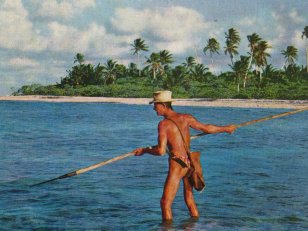
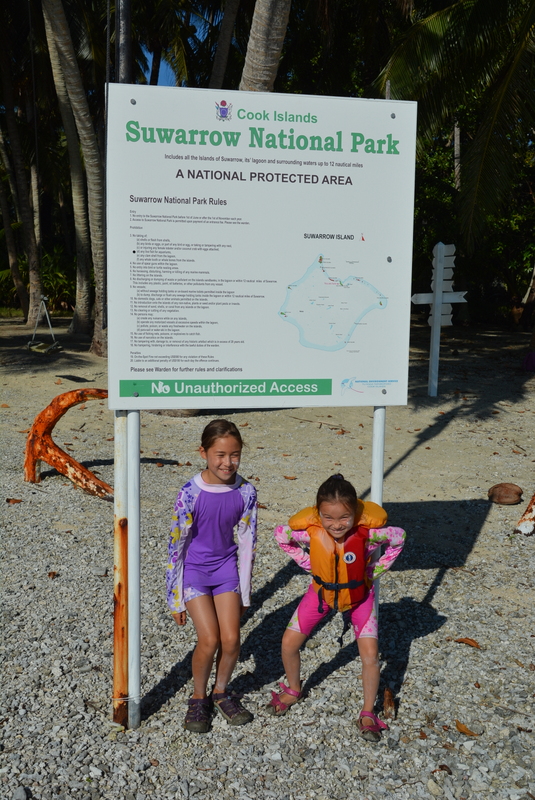
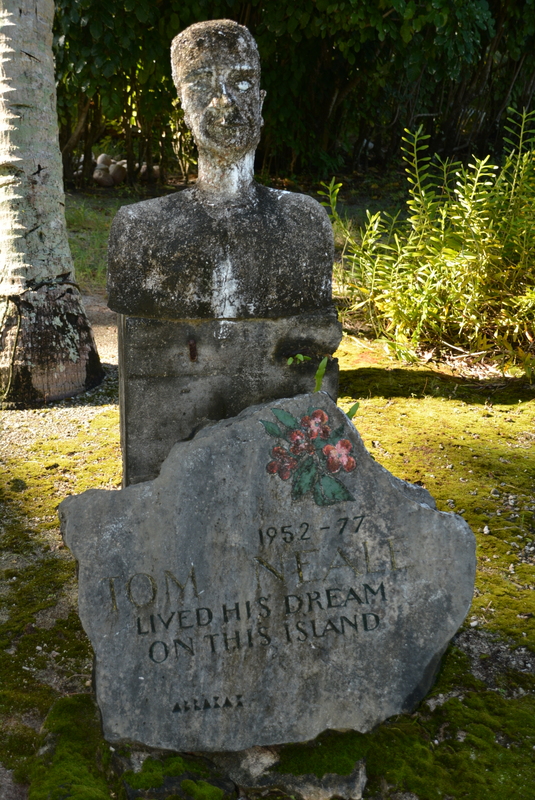

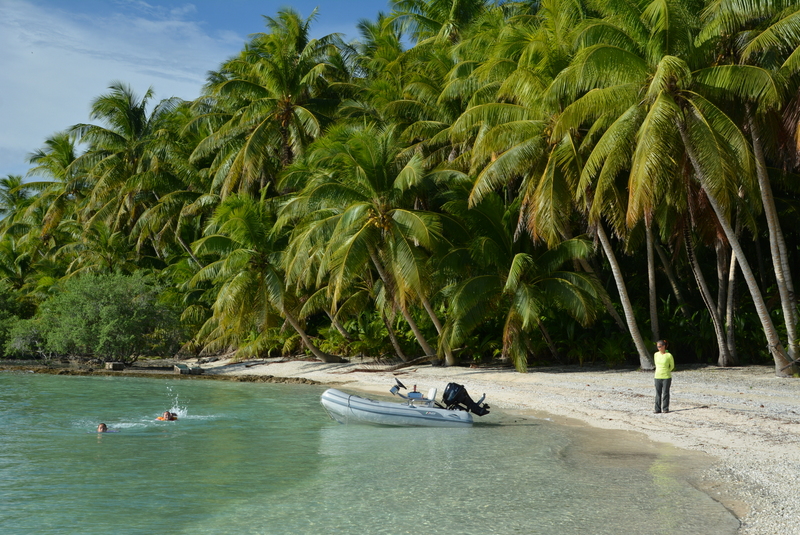
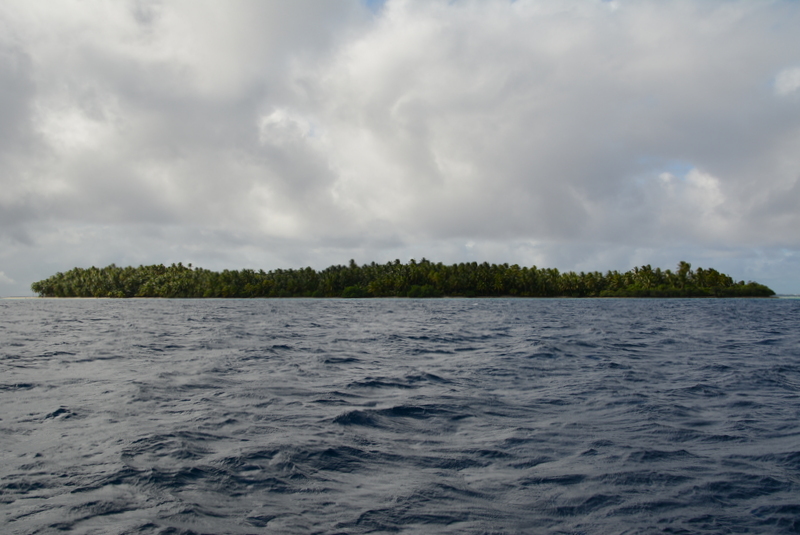

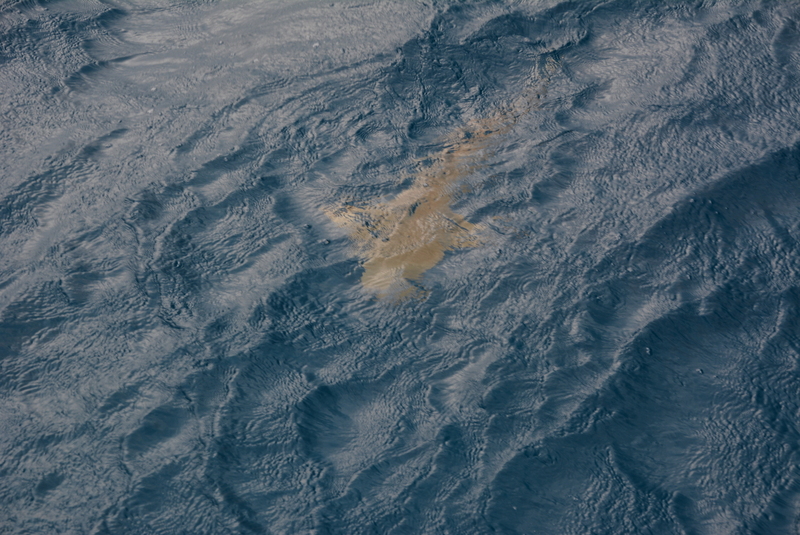
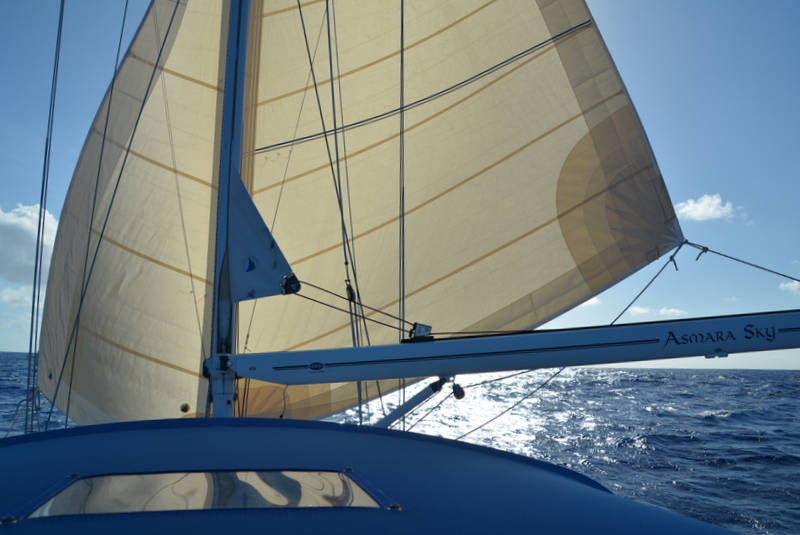
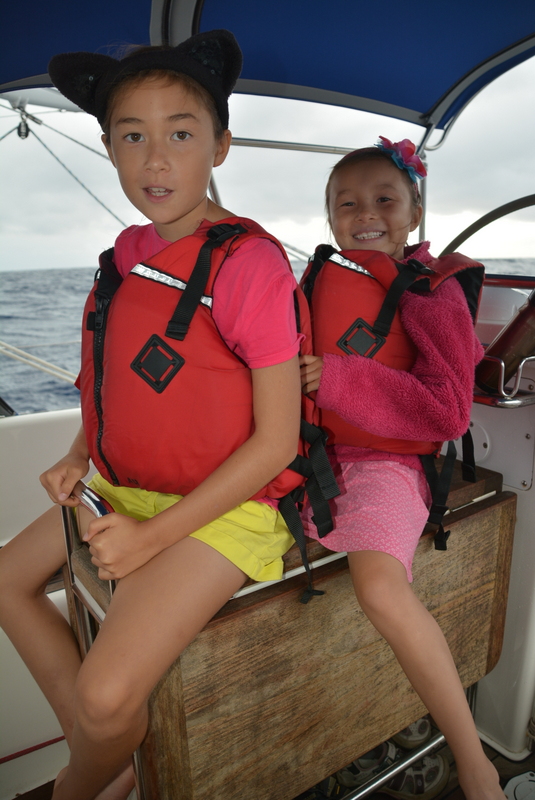

August 21, 2015
4:55 pm #comment-1
Well, its good to know you can sail to the most deserted corner of the globe and still be confronted by the same a-holes and their power/greed based asinine regulations. I guess I don’t need to take up sailing after all. Did you notice any Fatca enforcement officers swimming amongst the sharks?
August 22, 2015
5:47 pm #comment-2
Yeah, it was a grim reminder how lucky we are to have the freedom to leave places that suck. Not everyone can do that…
September 1, 2015
9:38 pm #comment-3
Thanks for the reminder to renew my Sierra Club membership….. Actually the whole thing made we wonder what had happened to the place that made them make rules like that. It is quite literally the middle of nowhere. Of course it might just be some power hungry bureaucrat that hates you yachties and wants to make you miserable (which is a much more entertaining possiblity)
September 15, 2015
10:13 pm #comment-4
Nope. They don’t care about yachties, which I’m fine with. These are rules enforced, blanket fashion, across the board by faceless bureaucrats far, far away who lead miserable, dark little lives.
Cheers.